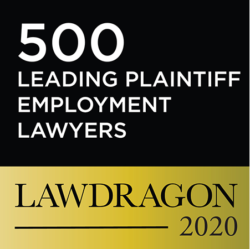If you suffer from a bone or joint injury, no one needs to tell you how painful those problems can be. In fact, severe fractures, knee and hip injuries are among the most disabling medical conditions in America.
The American Chiropractic Association reports that more than 80 percent of Americans will experience an orthopedic injury or illness at some point in their lives, and 50 percent of working Americans are currently suffering from orthopedic pain. Some orthopedic pain, such as back and neck pain, are treatable with rest, exercise, and posture alterations. As Americans continue to work into their later years, however, arthritic conditions become more common and more disabling.
In fact, disabling orthopedic conditions are so common and often occur as the result of age, individual and group long-term disability insurers almost always try to deny coverage. Some long-term disability policies severely limit back pain claimants from receiving benefits even if they otherwise qualify. These wrongful denials are often premised on “independent medical examiners” claiming your orthopedic condition is normal for your age.
DarrasLaw’s award-winning long-term disability lawyers and top-rated ERISA group attorneys protect disability claimants from bad-faith delays, denials, and terminations of benefits. With more than 100 years of combined litigation and claim experience, our stellar long-term disability attorneys and seasoned group ERISA lawyers know the insurance companies’ tricks—and we’ve beaten all of them at their own game.
If you’re one of the millions of Americans suffering from an orthopedic injury or illness, you may qualify for individual or group long-term disability benefits. To schedule your completely free disability policy analysis and free claim consultation, call us today at 800-898-7299 or contact us online.
Why Is Orthopedic Pain so Common?
Orthopedics is the study of your body’s musculoskeletal system, which includes:
- Bones
- Ligaments and tendons
- Joints
- Nerves
- Muscles
Your musculoskeletal system is what allows you to move. Furthermore, it connects your body together and bears its weight.
Lower back pain is common because your lower back bears the majority of this weight. As you age, your lower vertebrae weaken as the result of constant pressure.
Slipped or herniated spinal discs are another common cause of orthopedic pain. Intervertebral discs consisting of a soft, gel-like substance surrounded by a thicker outer layer cushion the vertebrae so the bones don’t rub together as you move. They also act as shock absorbers. Your spinal canal, which contains your central nervous system, is directly behind your vertebrae and discs.
Years of wear and tear on the spinal discs causes degenerative disc disease, but this name is deceptive. It’s neither degenerative (that is, it always worsens with age) or a disease. Instead, it’s a common age-related narrowing and weakening of your intervertebral discs that can cause:
- Pain
- Weakness, including the feeling of your back “giving out”
- Numbness
- Shooting pain in arms and legs
- Muscle tension and spasms
- Spinal instability
- Increased or different pain when sitting, standing, walking, or lying down
When it comes to individual and group long-term disability benefits, one of the most important symptoms of degenerative disc disease is increased pain when performing common occupational movements.
For example, if your occupation requires you to work at a computer all day, the discs in your neck are likely to narrow and deteriorate quicker. The same is true for a dentist who spent 20 years craning and bending over a dental chair. Pain will increase, and could grow sharp and debilitating when you’re in an occupationally demanding position.
Individual and group long-term disability insurers seldom cover these “age-related” conditions. Instead, you’ll have to use legally sufficient, compelling medical evidence and proof that an underlying medical condition is causing the pain that prevents you from performing the important duties of your occupation. This is where the nationally respected individual disability lawyers or top-rated group ERISA attorneys at DarrasLaw can help.
Disabling Degenerative Orthopedic Conditions
While individual and group long-term disability insurance companies often wrongfully deny valid claims for degenerative disc disease, you may qualify for disability benefits due to a related condition. Research indicates that degenerative disc disease hastens the onset of the following orthopedic conditions:
- Osteoarthritis: This is the most common cause of back pain in people older than 50 years old. Doctors define it as inflammation of the spinal joints that can occur when the protective cartilage wears down with time or where unnatural friction causes joint damage. Accordingly, not all osteoarthritis is age-related, as traumatic damage to your spinal joints can trigger osteoarthritis.
- Spinal stenosis: Doctors define spinal stenosis as a natural narrowing of your spinal canal, which can occur with time or as a result of a genetic condition. If your spinal canal narrows to the point where it begins compressing your central nervous system, spinal stenosis can actually lead to paralysis—for which you may claim individual or group long-term disability benefits.
- Scoliosis: This is an unnatural and sometimes congenital curvature of the spine. This curve can worsen with time as your intervertebral discs degenerate unevenly or it can develop as a result of this uneven deterioration.
- Spondylolisthesis: This painful condition occurs when one vertebra slips over the one below it. While it often occurs in males older than 50, trauma and car accidents can also cause spondylolisthesis.
If you suffer from spinal stenosis at age 25, it’s less likely your individual or group long-term disability insurance company will wrongfully deny your disability benefits. It’s hard to classify the condition as degenerative or age-related when you’re so young.
If you’re older than 45, however, expect a wrongful delay or denial of individual or group long-term disability benefits for spinal conditions. Even if a traumatic fall caused your spondylolisthesis, you’ll need to overcome the insurance company mantra that your problem is normal age-related degeneration.
Not every age-related condition causes symptoms, and some patients are surprised when an MRI shows age-related degeneration. In many cases, patients had no pain before an accident, but their long-term disability insurers will still try to classify the pain as “normal age-related degeneration.” In these cases, the experienced long-term disability attorneys and seasoned group ERISA lawyers at DarrasLaw can work with your treating doctors to prove your disabling injury or illness and get you paid.
Traumatic Orthopedic Conditions
One leading cause of disabilities in the United States is accidents resulting in spinal injuries. As you get older and your spine gets weaker, even something as simple as lifting a child or pushing a lawnmower can cause a herniated disc.
The same is true for car accidents. While a fender bender might have resulted in minor whiplash when you were 25, at age 50, it can result in multiple disc herniations and bulges that compress the nerve roots.
If your bones are weaker with age, you may also suffer more severe fractures. These are a few examples of traumatic orthopedic conditions:
- Whiplash: Simply put, whiplash is a strain of the neck tendons. It doesn’t always occur after a car accident, but it’s common when your head is thrown forward by force and then snapped back. Severe whiplash can disable you because it causes your neck muscles to seize. You’ll have trouble moving your head and may suffer from migraines and severe headaches at the base of your skull.
- Slipped and herniated discs: While age can often cause both of these conditions, they are also common after a traumatic fall or car accident. They occur when one or more of your intervertebral discs slip out from between your vertebrae or when the inner gel-like layer of your disc protrudes from its protective casing. While therapy can help, severe herniation often requires spinal surgery.
- Nerve root compression: This often goes hand in hand with severe herniation. It occurs when a slipped disc or broken vertebrae pushes onto the nerves in your spinal canal. This can cause anything from minor tingling to paralysis if the compression is enough to block blood flow and the nerve signals.
- Paralysis: Amyotrophic lateral sclerosis, or Lou Gehrig’s disease, and birth injuries such as cerebral palsy can cause paralysis. However, traumatic spinal damage and brain injuries often cause paralysis as well. Spinal cord injuries that either bruise or sever the spinal cord will cause paralysis below the damaged area. According to the Christopher Reeve Foundation, traumatic spinal cord injuries worsen after the initial accident. Substantial impact in an accident can kill or damage nerve cells, but loss of oxygen and the release of chemicals to the site of the injury further damages the spinal cord. Spinal nerves do not heal themselves like other cells, making this type of damage irreversible.
- Spinal fractures: Blunt force trauma or a related accident can break vertebrae much like any other bones. Sometimes the bone is just chipped, but a fracture through the vertebra requires immediate attention, as it can permanently damage or sever the spinal cord.
- Fractures: Unless you have a rare genetic condition, fractures are typically only caused by trauma. Severe fractures of larger bones, such as your femur, may require multiple surgeries. Further, hip fractures in older adults can often prove disabling.
Don’t be surprised if, even after a traumatic accident, your individual or group long-term disability insurer wrongfully delays, denies, or terminates your individual or group disability benefits. America’s top-rated long-term disability attorneys and nationally preeminent group ERISA lawyers at DarrasLaw can help you and your treating doctors present the proper medical evidence, so your disability carrier pays your back claim.
Additional Orthopedic Disabilities
Many other orthopedic conditions can result in disabilities if they prevent you from performing the important duties of your occupation. Common examples include:
- Carpal tunnel syndrome: This occurs when one of the major nerves in your hands get compressed. Common symptoms include pain, numbness, and tingling in your fingers, hands and arms, which makes it difficult to perform fine motor skills, like typing, dentistry, and surgery. Carpal tunnel syndrome often requires surgery before the condition causes permanent nerve damage. Remember, your nerves don’t heal like the rest of your body.
- Tennis elbow: This is a common term for lateral epicondylitis, or inflammation of the tendons in your elbows due to overuse. If your occupation requires constant lifting or use of your elbow, this condition may disable you.
- Bunion surgery: This is often a genetic condition where your big toe begins to crash into your smaller ones, causing a painful bone bulge in your foot. A bunion makes it extremely painful to walk and requires surgical correction. The surgery is difficult, as it often involves breaking the bones and joints of your foot to reset the toe.
- Knee surgeries and replacements: Car accidents are a surprisingly common cause of knee injuries. They occur when your knee hits the dashboard after an accident. However, many individual and group long-term disability claimants need a knee replacement as the result of continuous wear and tear. This complicated surgery may take you out of work for months.
Other orthopedic conditions that could result in valid disability claims include cubital tunnel syndrome, swimmer’s shoulder, Paget disease of the bone, rheumatoid arthritis, hip replacements, and bursitis.
If you’re suffering from an orthopedic condition that prevents you from performing one or more of your occupation’s important duties, you may qualify for individual or group long-term disability benefits. Especially if you’re older than 50, don’t hesitate to contact the award-winning individual disability lawyers and nationally renowned group ERISA attorneys at DarrasLaw. We might help you head off a wrongful “age-related” denial of your individual or group long-term disability benefits.
Consult America’s Top-Rated Individual and Group ERISA Long-Term Disability Attorneys at DarrasLaw
With more than 100 years of combined litigation and claim experience, the nationally prominent individual long-term disability lawyers and award-winning group ERISA attorneys have seen too many wrongful delays, denials, and terminations of orthopedic disability claims. Led by America’s top-rated long-term disability lawyer, Frank N. Darras, our experienced individual long-term disability insurance lawyers and stellar group ERISA attorneys know how seriously orthopedic pain can derail your career.
To schedule your completely free disability policy analysis and free claim consultation, call DarrasLaw today at 800-898-7299 or contact us online.













